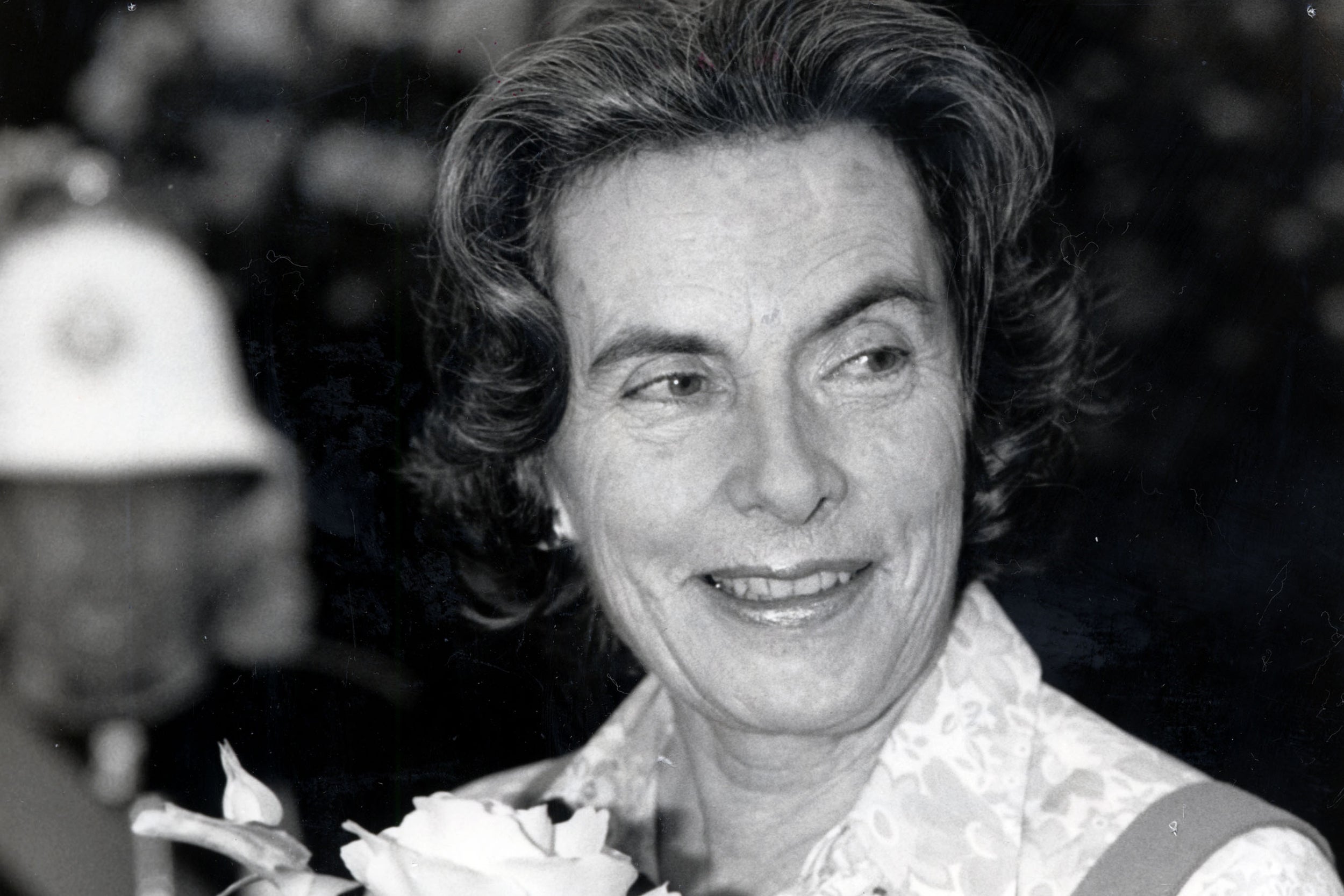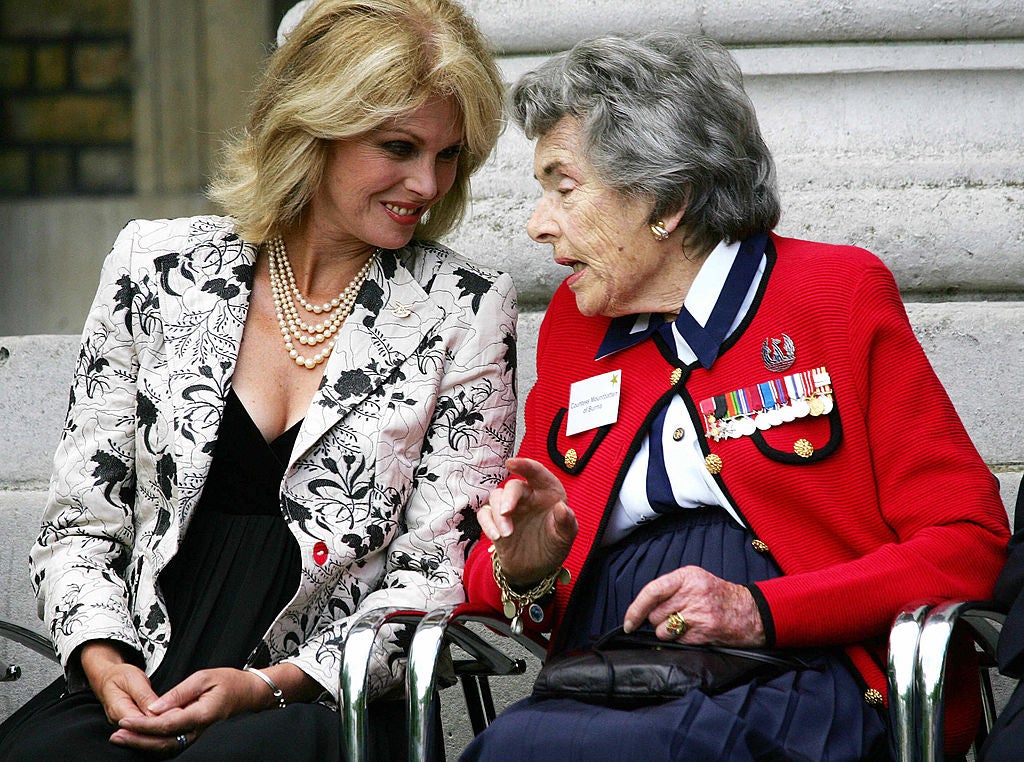Countess Mountbatten of Burma, obituary: Survivor of IRA bomb and known for her work with bereavement charities
She was the great-great granddaughter of Queen Victoria and, following the assassination of her father Earl Mountbatten, she took her seat in the House of Lords

Your support helps us to tell the story
From reproductive rights to climate change to Big Tech, The Independent is on the ground when the story is developing. Whether it's investigating the financials of Elon Musk's pro-Trump PAC or producing our latest documentary, 'The A Word', which shines a light on the American women fighting for reproductive rights, we know how important it is to parse out the facts from the messaging.
At such a critical moment in US history, we need reporters on the ground. Your donation allows us to keep sending journalists to speak to both sides of the story.
The Independent is trusted by Americans across the entire political spectrum. And unlike many other quality news outlets, we choose not to lock Americans out of our reporting and analysis with paywalls. We believe quality journalism should be available to everyone, paid for by those who can afford it.
Your support makes all the difference.On Bank Holiday Monday in August 1979, Patricia, Lady Brabourne, as she was then, was on a family sailing trip, lobster-potting and tuna-fishing off the coast of County Sligo. She was with her father, Earl Mountbatten, her husband, Lord Brabourne, their twin sons Nicholas and Timothy, her mother-in-law, the Dowager Lady Brabourne, and a 15-year-old crew member, Paul Maxwell.
During the night a member of the IRA, Thomas McMahon, had slipped on board the unguarded Shadow V and planted a radio-controlled 50lb bomb. It was detonated a few hundred yards from the shore: the last thing Patricia remembered hearing was her mother-in-law saying, “Isn’t it a beautiful day?”
Earl Mountbatten was pulled alive from the water but died shortly afterwards; the Dowager Lady Brabourne died the following day. Nicholas, 14, died, as did young Paul Maxwell. Timothy was blinded in one eye. Patricia, who became Lady Mountbatten on her father’s death, received facial injuries that required 120 stitches. “My IRA facelift,” she called it.
“I was so overwhelmed with grief for Nicky, who was just on the threshold of his life, that I began to feel guilty that I was not able to grieve for my father, whom I really adored, in the same way,” she recalled. “But the world was mourning him, and there was comfort in that.”
A few weeks later, Gerry Adams, then the vice president of Sinn Fein, was unapologetic. “What the IRA did to him is what Mountbatten had been doing all his life to other people, and with his war record I don’t think he could have objected to dying in what was clearly a war situation ... In my opinion, the IRA achieved its objective: people started paying attention to what was happening in Ireland.”

Patricia was born in 1924 in London. Queen Victoria’s great-great-granddaughter, she was first cousin to Prince Philip and third cousin to the Queen. She was close to her father, but her mother, Edwina, was a distant figure in her childhood.
She was schooled in England and abroad, served in the Wrens and was on the signals staff in Portsmouth. It was during her military service that she met John Knatchbull – Lord Brabourne – a captain in the Coldstream Guards, and when they married in 1946, princesses Elizabeth, Margaret and Alexandra were bridesmaids.
Two years later she was with her father in India when Mahatma Gandhi was assassinated: “My father and I had been riding together. We came back at dusk to be met by a white-faced ADC with the news.”
After her father’s assassination she took her seat in the House of Lords, and worked with the Child Bereavement Charity and Compassionate Friends. Lord Brabourne was a successful film producer – of A Passage to India, Murder on the Orient Express and Death on the Nile, among others – and a chairman of Thames Television and Euston Films.
He died in 2005, and Patricia is survived by their four sons and two daughters. The bomber, McMahon, served nearly 20 years in jail for the murder, and was released under the Good Friday Agreement in 1998. In 2011 he helped Martin McGuinness’s campaign for the Irish presidency, putting up posters.
Patricia had spent five weeks in hospital after her father’s assassination, but the inner scars remained with her. “I cried every day for over six months and intermittently for the next year,” she later recalled. “I can still cry over it very easily.”
Patricia Edwina Victoria Mountbatten, 2nd Countess Mountbatten of Burma, born 14 February 1924, died 13 June 2017
Join our commenting forum
Join thought-provoking conversations, follow other Independent readers and see their replies
Comments